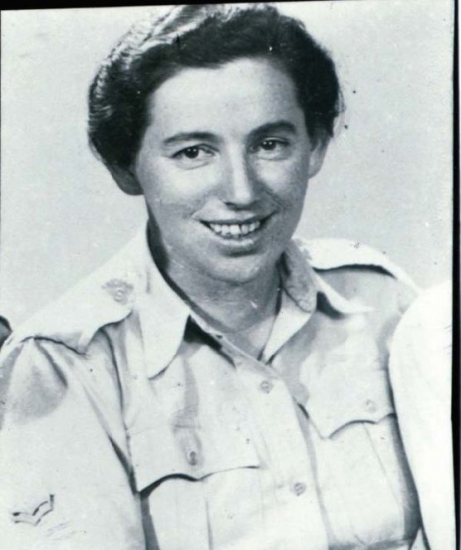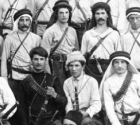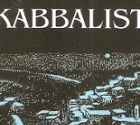
Sitting on a shelf in the Yad Yaari library at Givat Haviva are two copies of the book Women in Kibbutz published in the 1940s.
A copy of the same publication was the book of choice for British trained parachutist Haviva Reik, who was captured and executed 65 years ago in Eastern Europe and after whom the educational center Givat Haviva – the 60th anniversary of which was celebrated in November – was named.
One of the first women to be recruited into the ranks of the Palmach, Slovakian born Haviva later volunteered for a special Jewish paratroopers' unit formed by the British Air Force and following intensive training set out on a daring mission back to where she was born, the small provincial town of Banska Bystrica.
At the end of October, 1944 Haviva joined local partisans in the heart of a combat zone very close to her birthplace. When the town was overrun by the Germans, she and her companions retreated to the Tatra Mountains where they were captured by a Waffen Division of the Ukranian SS. Her few personal possessions, including the book, were left on a Tatra Mountains hilltop. Retrieved some years after her capture and execution, the book was returned to Israel where it was restored and presented to the community where Haviva lived before her fateful journey back to Slovakia, Kibbutz Ma'anit - the neighboring community to the present day campus of Givat Haviva.
Josepha Fecher, head librarian of the Givat Haviva situated Yad Ya'ari Research and Documentation Center of the Hashomer Hatzair movement and the Kibbutz Artzi Federation, was born a year after Haviva Reik was executed.
The daughter of Hungarian and Romanian immigrants who had joined the Hashomer Hatzair kibbutz of Ma'abarot in the Sharon plains, Josepha has lived in the kibbutz all her life. Born and educated at Ma'abarot she married Nadav Fecher, a member of the Jezreel Valley kibbutz of Mizra, another of the veteran and once influential kibbutzim of the Hashomer Hatzair movement.
Intrigued as to why Haviva Reik would have chosen the particular book when setting out on the dangerous mission she knew she had little chance of surviving, this writer asked Josepha if she had read the book, copies of which are prominently displayed on the foremost shelves of the Yad Ya'ari compact library and reading room.
"The book of my choice under any circumstances where books would not be available to me for a long period would definitely be the Bible," commented Josepha rather surprisingly being as she was born and educated and has always lived in Hashomer Hatzair kibbutzim where atheism is one of the main bolts of basic movement ideology.
Josepha Fecher checked out a copy of Women in Kibbutz. A week later, the librarian and former journalist in the 1980's at the 'This Week in Kibbutz Artzi' movement newspaper, is still in awe of the accounts by women of their lives in the kibbutzim during the 1920's through to the beginning of the 1940's.
"I couldn't put the book down. It gives moving, marvelous and wonderful insight into the incredibly terrible hardships faced by women during those years," explained Josepha, the book sitting on her work station in the library, bookmark showing she had almost completed the mission set for her the previous week.
"There is one account here," she says pointing to the book, "penned by a girl in 1908, Second Aliya, and another written by a 15 year-old in 1913.
"Can you imagine it, a 15 year-old girl leaving all her family behind in Russia in 1913 to join a group of pioneers in Palestine? Truly unbelievable," she says with feeling.
"The book is divided into various topics ranging from personal memoirs and reasons for aliyah, life in the cooperative, the soul searching and difficult choices made by the individual with regard to the rest of the collective and so much more."
Established in 1937 and recognized by the State of Israel as a public archive, Yad Ya'ari contains documents and artifacts spanning almost 100 years – from the early days of the kibbutz until present times; the history of the political parties Mapam, Meretz and their predecessors; the history of the movement in Israel and abroad, and a wealth of personal archives presented to the Givat Haviva center by many leaders and prominent personalities in the country.
Even having lived 67 years in the kibbutz, hearing many stories from her parents who became a couple after her mother nursed her malaria stricken father back to health in Ma'abarot, Josepha Fecher was astonished at the extent of the harsh conditions faced and described by the women in the first years of the communities that became known as kibbutzim.
"One woman describes so vividly the shortage of food for instance and asks herself again and again how it could be that people who were working from morn until night in the most terrible of conditions would be fed only bread and onions – and sometimes even less than that," explains Josepha.
The same woman also describes the development of the kitchen in her collective, starting with cooking out in the open air in all weathers to the first 'construction' giving a roof over her head … and the boiling pots of food.
"Members of kibbutzim during these times were falling like flies from malaria and other diseases, and the leadership of the Second Aliya began to send representatives to the various working groups to teach them how to organize what little they had in the best possible way," commented Josepha.
One of the women in the book describes how when she had little to nothing to put on the table for the workers, she simply collected wild mallow from the vicinity of the tent cum kitchen and dished up an almost edible paste on their tin plates.
Why do you think Haviva Reik chose to take this book?
"In my opinion Haviva was no less of a pioneer than those women whose accounts are contained in this book," said Josepha. "The difficulties and suffering of those women did not succeed in breaking their spirit and belief in the founding of the very different and unique lifestyle they were developing. When she left for Europe, it's obvious that Haviva knew there was little chance of her surviving. Taking this particular book with her she probably felt that she was being accompanied by the writers themselves, women with whom she shared so much," Josepha answered with a smile.
Maybe Haviva Reik did choose that particular book because it proved that women decades before had succeeded in what had then been deemed a mission impossible - and she was about to take on yet another.
Caption:
Left :Givat Haviva Yad Yaari librarian and archivist Josepha Fecher and Israeli heroine Haviva Reik
 DEAR EDITOR 153
DEAR EDITOR 153 REVISITING THE PAST BETH HASHOMER
REVISITING THE PAST BETH HASHOMER BIBLICAL ZOOS & ANIMAL RESERVES IN ISRAEL
BIBLICAL ZOOS & ANIMAL RESERVES IN ISRAEL Robert Kwong at the Yeshiva
Robert Kwong at the Yeshiva  Friday Night with the Pope - A Book Review
Friday Night with the Pope - A Book Review The Kabbalist - A Book Review
The Kabbalist - A Book Review  Lydia Aisenberg
Lydia Aisenberg